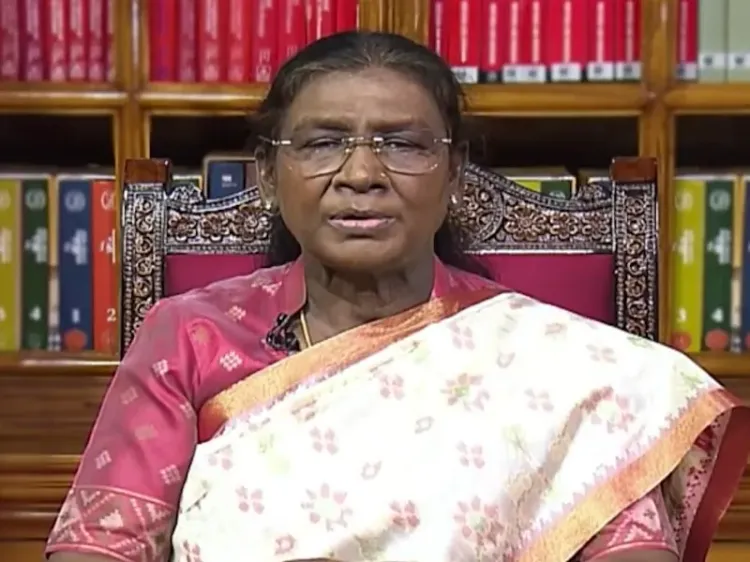Is Access to Essential Facilities Like Tap Water a Fundamental Right for Citizens?

Synopsis
Key Takeaways
- Access to tap water is recognized as a fundamental right.
- The Jal Jeevan Mission has significantly increased tap water connections in rural areas.
- Over 80% of rural households now have tap water access.
- The initiative aims to ensure safe drinking water for all.
- Regular assessments are conducted to ensure functionality of connections.
New Delhi, Aug 14 (NationPress) In her speech to the public on the eve of the 79th Independence Day, President Droupadi Murmu emphasized the significance of access to essential facilities, asserting that it is a fundamental right of every citizen. She highlighted one of the government's premier initiatives, the Jal Jeevan Mission (JJM), aimed at transforming the lives of countless individuals.
She pointed out the profound impact of the Atal Mission for Rejuvenation and Urban Transformation (AMRUT), which is designed to enhance urban living standards.
Since its launch on June 25, 2015, this initiative has been pivotal in delivering basic services such as water supply, sewerage, urban transport, and parks.
President Murmu noted that the Atal Mission has resulted in significant improvements in living conditions, particularly in the provision of tap water.
Over the last decade, a total of 2.03 crore tap connections and 1.50 crore sewer connections have been established through AMRUT and its subsequent phase, AMRUT 2.0.
Government statistics reveal that 80.93 percent of rural households among the 19.36 crore total in the country now have a tap water supply.
Recently, Minister of State for Jal Shakti V. Somanna informed Parliament that under the Jal Jeevan Mission (JJM) – Har Ghar Jal, approximately 12.43 crore additional rural households have received tap water connections as of July 15, 2025, since the mission's launch in August 2019.
At the inception of this mission, only 3.23 crore (16.7 percent) rural households were reported to have tap water connections, according to the Minister of State.
The mission was initiated to ensure that every rural household in India has access to reliable and safe drinking water in adequate quantities and quality through tap connections, he noted.
To evaluate the effectiveness of the initiative, the Department of Drinking Water and Sanitation conducts an assessment of the functionality of household tap water connections through an independent third-party agency using standard statistical sampling.
During the Functionality Assessment 2022, it was discovered that 86 percent of households had functional tap connections. Among these, 85 percent received water in sufficient quantities, 80 percent received water regularly according to their water supply schedule, and 87 percent of households met the prescribed water quality standards, stated the Minister of State.










